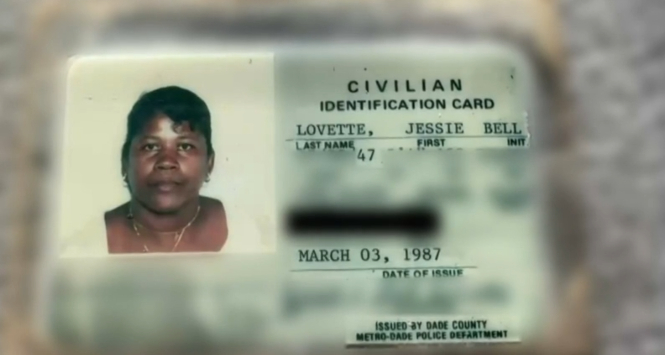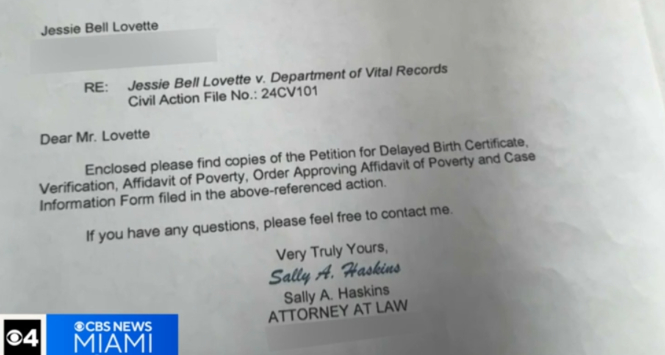A longtime Florida resident born in rural Georgia in the 1940s, Jessie Lovette, says she feels invisible in the eyes of the government.
Despite having a Social Security number and decades of official identification history, the 76-year-old grandmother can no longer obtain a valid Florida ID due to strict federal Real ID requirements — all because she was never issued a birth certificate.
Lovette’s predicament reflects a growing crisis affecting older Americans — especially Black women born in the segregated South — as the Real ID Act begins full enforcement nationwide.
“It’s like I’m nobody,” Lovette told CBS News Miami. “That’s how I feel. I was embarrassed to tell my children.”

Lovette was born at home in Marion County, Georgia, during the Jim Crow era. A midwife assisted in her birth, but no official birth record was ever filed. While that lack of documentation didn’t stop her from getting state IDs in the past, times have changed.
“I used to go over there by the stadium. They didn’t ask for no birth certificate or nothing. You just tell them your age and where you was born at and they give you an ID,” she said.
Now, Real ID rules — a federal security measure requiring verified proof of identity and legal presence — have made Lovette’s expired 2020 ID impossible to renew.
A Family Fighting for Recognition
For five years, her children have fought alongside her to obtain a delayed birth certificate from Georgia. Despite submitting extensive documentation — including a marriage license listing her Georgia birthplace — their requests have been denied.
Her son Derrick has retained a Georgia attorney and continues to appeal the decisions.
“In July it’ll be five years,” he said. “It’s been hard for my mom because I’d do anything for her.”
Lovette’s daughter, Pamala Lloyd, said the missing ID has repeatedly blocked her mother’s access to medical care.
“We’ve got turned around with so many doctors,” Lloyd said. “Once they run that ID, it’s like, ‘Sorry Ms. Lovette, we can’t see you based on the expiration.’”
The expired ID has even affected routine tasks like applying for a handicap sticker or accompanying family on errands.
“You never know if you’re gonna get pulled over,” Lloyd added. “It’s gonna be a situation with her not having her ID.”
Real ID’s Unintended Victims

The Real ID Act, passed in 2005, was designed to enhance national security, but critics say it’s having unintended consequences for vulnerable populations. Older adults born in non-hospital settings, often in poor or rural Black communities, may have never received formal birth certificates — leaving them in bureaucratic limbo.
Lovette is not alone. Just last month, CBS News Miami reported on Janette Gantt Palmer, another South Florida woman struggling to obtain an ID due to missing birth records from South Carolina.
Hope on the Horizon?
Lovette’s family recently learned they have a new hearing scheduled on June to reconsider the delayed birth certificate request. Meanwhile, Government agencies have told CBS News Miami they are now reviewing her case.
Until then, Lovette remains without a valid ID, unable to fully access the healthcare and services she’s entitled to.
“The midwives couldn’t read or write,” Lovette reflected. “But they knew how to deliver the babies.”
